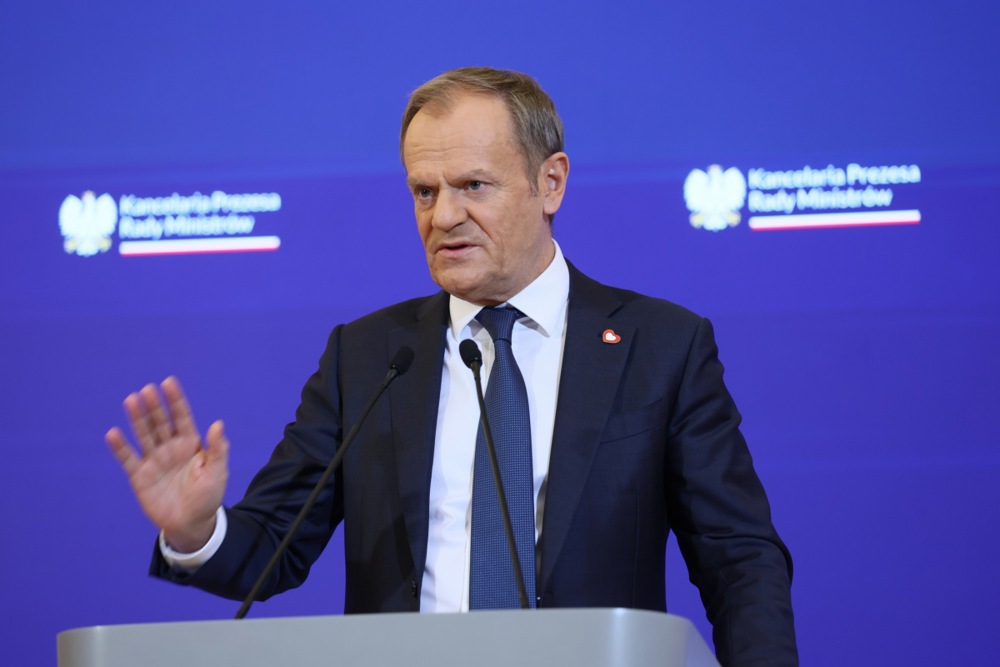The Polish Government has published a draft bill which, if it becomes law, would make comments about LGBT people that are found offensive punishable by up to three years in prison.
The proposed legislation has been piloted by deputy justice minister Krzysztof Śmiszek of the Left party, which is part of the coalition Government with Prime Minister Donald Tusk’s Civic Coalition and the Third Way alliance.
The planned move was declared a priority by activists who said LGBT people have insufficient legal protection against so-called “hate speech”.
The draft published by the government information centre (CIR) widens the catalogue of discriminatory criteria to include disability, age, sexual orientation and gender identification.
Śmiszek said: “The introduction of the draft is to ensure full protection to victims in the penal code against the use of force, threats, incitement of hatred and defamation based on disability, age, sexual orientation or gender identity.”
If it becomes law, it will include penalties of between three months to five years in prison for acts of violence or the threat of the use of force based on discrimination. Other penalties include up to three years in prison defamation based on discrimination against sexual orientation or gender identification.
Paweł Szafraniec, who works for the conservative think-tank Ordo Iuris, told Brussels Signal: “There is no definition of the term ‘hate speech’ in this legislation, only a listing of the categories of people is intended to protect.
“These definitions are nowhere to be found in international treaties or verdicts of international courts. International organisations have been attempting to formulate such definitions but they are not binding for their Member States.”
Szafraniec said of potential definitions: “They tend to be very broad and dangerous for the freedom of speech, information and expression, therefore they pose a challenge to human and civil rights.”
He observed that “hate speech” was not as yet defined in Poland’s penal code but warned of the risks.
“Let’s not kid ourselves: The aim of this legislative draft is not to protect LGBT people but to provide a stick for dealing with opponents of the LGBT movement, to stop them publishing research which questions the demands being made by LGBT activists.
“It’s a political measure designed to shut people up and thereby to block freedom of speech,” he said.
The legislative draft is likely to clear both the Chambers of Parliament where the ruling coalition has a majority but will probably be vetoed by President Andrzej Duda as he is a supporter of the Conservatives (PiS) whose members are set to oppose the proposed law.
In its time in office, the PiS opposed LGBT sex education in schools. Some Polish local authorities drew the ire of the European Commission when they passed resolutions supporting a “Charter for families” that sought to keep “LGBT ideology” out of schools.
LGBT activists claimed the PiS was proposing “LGBT-free zones” with one activist, Bart Staszewski, posting photographs of himself standing under a sign he erected reading “LGBT-free zone”.
Tusk’s party, the Left party and many in the Third Way alliance support the introduction of legislation to legalise same-sex unions as civil partnerships, although the Polish Constitution defines marriage as a union between a man and a woman.





